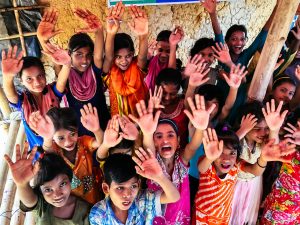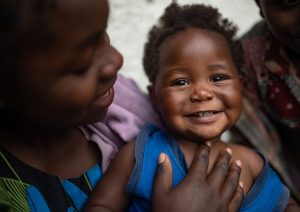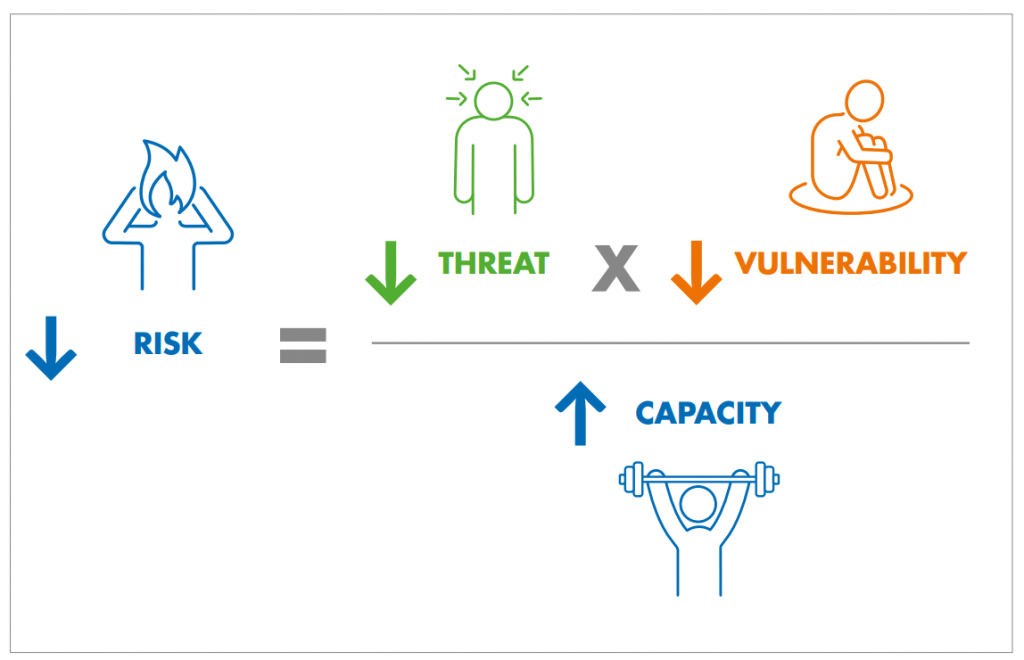

Your browser is not up to date.
If you wish to view the Action Against Hunger website correctly, update your browser.
Find the latest versions of supported browsers listed below.
No matching results…
No results seem to match what you are looking for, please modify your search.
 © Barbara Debout pour Action contre la Faim
© Barbara Debout pour Action contre la Faim
According to the Global Humanitarian Overview 2023, 339 million people need humanitarian assistance and protection, a significant increase from 274 million people at the beginning of 2022.¹
Ongoing crisis and emerging conflicts have increased the number of internally displaced people and refugees, with 103 million people forcibly displaced globally, and about 41 of whom are children. Conflicts from different natures continue hitting civilian populations hard and further exacerbate the needs of the most vulnerable categories of people, including women, children and persons with disabilities. Persons with disabilities, particularly children, are too often left behind in situations of armed conflict and experience serious risks and challenges to flee, protect themselves and access necessities². Women and girls, as well as LGBTQI+ persons, remain at increased risk of gender-based violence in humanitarian emergencies worldwide. Traditional practices, cultural belief and gender inequality are some of the factors that further expose vulnerable people to protection risks and deeply affect their nutrition security.
Conflict, climate-related crises and internal displacement, all contribute to growing levels of Gender Based Violence (GBV). These crises exacerbate existing gender inequalities and disproportionately increase women’s and girls’ risk of death, violence, hunger, sexual violence, forced and child marriage, trafficking and Sexual Exploitation and Abuse (SEA).
Action Against Hunger upholds the Interagency Standing Committee (IASC) Principals Statement and Policy on the Centrality of Protection issued in December 2013, which states that “the protection of all affected communities must inform humanitarian decisions and responses indicating that beyond protection-mandated agencies, all humanitarians have the responsibility to protect affected communities before, during and after crises”. By adopting the IASC statement, Action Against Hunger commits to the incorporation of protection principles into all aspects of its interventions.
With the centrality of protection, Action Against Hunger aims at improving people’s safety, putting them at the centre of humanitarian actions, reducing the risks they might face, and enhancing well-being and dignity for crisis-affected populations.


The term “protection” refers to the circumstances where all people’s human rights should be respected and protected in accordance with International Humanitarian Law and International Human Rights Law. Protection is about the safety, dignity and rights of people affected by disaster or armed conflict. (Sphere). Protection represent all activities that aim at achieving full respect for the rights of the individual in accordance with the letter and spirit of the relevant bodies of law (i.e. international human rights law, international humanitarian law, international refugee law) (IASC)
Evidence-based studies show that direct actions to address the immediate determinants of undernutrition can be further enhanced by acting on some of its basic and underlying causes. Neglect, discrimination, abuse, exploitation and violation of rights may prevent people from fulfilling their needs and having full enjoyment of their rights including access to and provision of adequate food, water, health, lands, etc. Here, the protection framework comes to reinforce Action Against Hunger’s fight against hunger by identifying protection risks, threats and acts upon them, to contribute to the creation of a protective environment for affected populations in a holistic way.


In light of the current crisis where protection risks are extremely intrinsic to people’s needs and their access to rights, it is imperative for the humanitarian community to think of the way they intervene during and after emergencies, to ensure that responses to violations are fully integrated with meeting people’s needs and rights in a holistic way.
Therefore, since 2021, ACF has developed and piloted the “Protection Integration in Nutrition Security” Project with the objective to strengthen ACF capacity to adapt and implement the protection integration in nutrition security framework across all interventions globally. This project funded by SIDA until 2025 will allow ACF to ensure a systematic and sustainable integration of protection in all its sectors of intervention. Through this pilot project, a methodology and a toolbox has been developed and continue to be enriched throughout the project pilot phase.
The piloting of the PIINS project in Burkina Faso, Democratic Republic of Congo, Cameroon, Central African Republic and Senegal has further highlighted the strong link between protection and nutrition security. The Protection Risk Analysis conducted in those 5 countries have provided evidences on how violence and abuse, including GBV, violence against children, human right violation, had negative impact on people’s nutrition condition, as access to food, water and sanitation, health and mental health services was severely restricted. In most areas where protection risk analysis where conducted, very few data was already available on protection and humanitarian access was limited. Conducting protection risk analysis integrated to other sectors’ interventions can provide essential information on the protection risks faced by the population and their specific protection needs, and can inform program design and interventions in hard to reach areas.
Through the PIINS methodology, and in line with its recently approved Protection Policy, Action Against Hunger ensures that its interventions are protection oriented, seeking to prevent, mitigate or respond to actual and potential risks faced by affected communities, including violations of international humanitarian and human rights laws. This requires a constant analysis of the risks people face, by identifying the existing threats, people and communities’ vulnerabilities as well as the capacities of affected persons to cope with the risks, and of the commitment and capacities of duty bearers to address risk factors.
